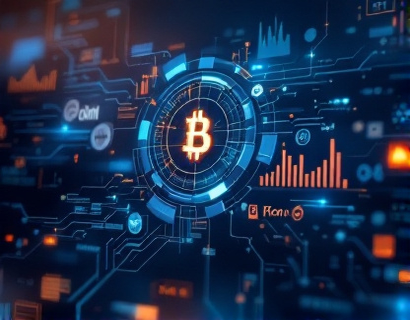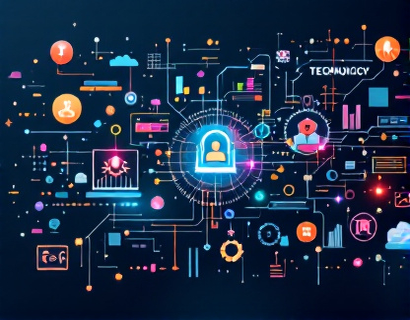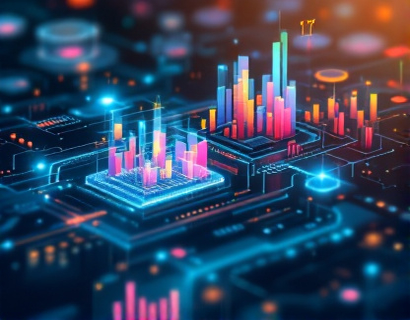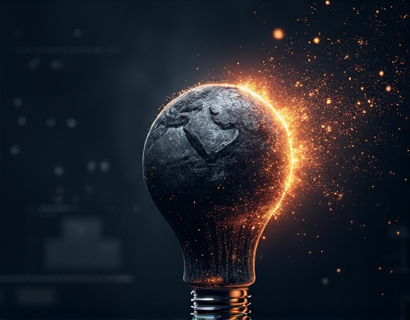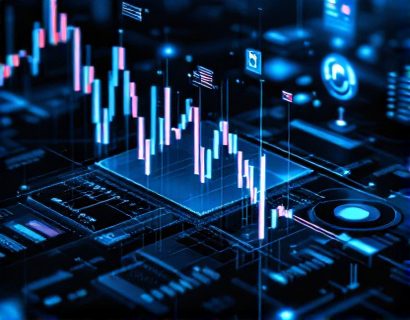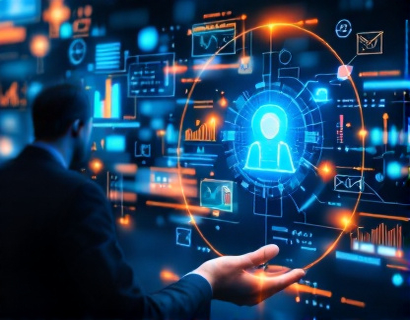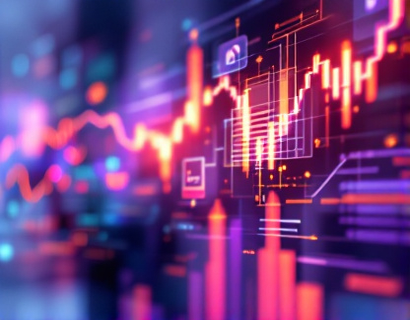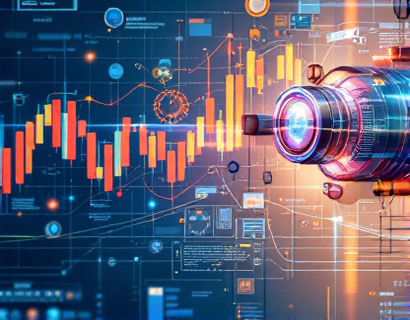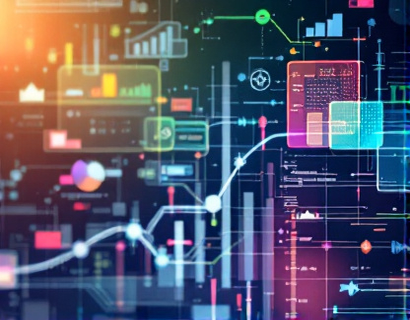Revolutionizing App Ecosystems: The Synergy of Crypto and AI
The integration of cryptocurrency and artificial intelligence (AI) is ushering in a new era of digital innovation, fundamentally transforming app ecosystems and user experiences. This convergence of blockchain technology and advanced algorithms is creating seamless, efficient, and secure solutions that redefine how we interact online. As tech enthusiasts and early adopters, understanding this synergy is crucial for navigating the future of digital services.
The foundation of this revolution lies in the unique properties of blockchain technology. Blockchain offers a decentralized, transparent, and immutable ledger that ensures data integrity and security. When combined with AI, which excels in pattern recognition, predictive analytics, and automation, the potential for enhancing app ecosystems becomes immense. This article delves into how these technologies are merging to create next-generation applications and services, elevating the digital landscape and transforming online interactions.
Enhanced Security through Blockchain
One of the most significant benefits of integrating blockchain into app ecosystems is the enhancement of security. Traditional centralized systems are vulnerable to hacking and data breaches, as they rely on a single point of control. Blockchain's decentralized nature distributes data across a network of nodes, making it extremely difficult for malicious actors to alter or steal information. This inherent security feature is particularly crucial for applications handling sensitive data, such as financial transactions, health records, and personal identification.
Smart contracts, self-executing contracts with the terms directly written into code, further bolster security and automation. These contracts automatically enforce and execute agreements when predefined conditions are met, eliminating the need for intermediaries and reducing the risk of fraud. For instance, in the realm of supply chain management, smart contracts can ensure that products are authentic and have not been tampered with, from production to delivery.
AI-Driven Personalization and User Experience
AI plays a pivotal role in personalizing user experiences within app ecosystems. By analyzing vast amounts of user data, AI algorithms can predict user preferences, behaviors, and needs, enabling apps to provide tailored content and services. This level of personalization not only enhances user satisfaction but also increases engagement and retention rates. For example, streaming platforms use AI to recommend shows and movies based on viewing history and ratings, creating a more enjoyable and relevant experience for each user.
Moreover, AI-powered chatbots and virtual assistants are becoming increasingly sophisticated, offering real-time support and assistance to users. These AI-driven interfaces can understand natural language, recognize emotions, and adapt to user interactions, making them more intuitive and effective. In customer service, AI chatbots can handle a wide range of queries, from simple troubleshooting to complex issue resolution, reducing response times and improving overall service quality.
Efficient Data Management and Analytics
The combination of blockchain and AI revolutionizes data management and analytics within app ecosystems. Blockchain ensures that data is stored securely and transparently, while AI provides powerful tools for data analysis and insights. This synergy enables apps to process and analyze large datasets efficiently, uncovering valuable patterns and trends that can inform decision-making and drive innovation.
For instance, in the healthcare sector, blockchain can securely store patient data, ensuring privacy and compliance with regulations like HIPAA. AI algorithms can then analyze this data to identify disease patterns, predict patient outcomes, and optimize treatment plans. This integration not only enhances the accuracy and speed of medical diagnostics but also improves patient care and outcomes.
Decentralized Finance (DeFi) and App Ecosystems
Decentralized Finance (DeFi) is another area where the convergence of blockchain and AI is making a significant impact. DeFi platforms leverage blockchain to create financial services that are open, transparent, and accessible to anyone with an internet connection. AI enhances these platforms by providing advanced risk management, fraud detection, and algorithmic trading capabilities.
For example, AI-driven algorithms can analyze market trends and execute trades automatically, optimizing returns and minimizing risks. This automation not only increases efficiency but also makes financial services more inclusive, as users without traditional banking access can participate in the global economy. DeFi applications, such as decentralized exchanges and lending platforms, are redefining the financial landscape, offering users greater control and transparency.
Supply Chain Optimization
Supply chain management is another domain where the integration of blockchain and AI is transforming app ecosystems. Blockchain provides a transparent and immutable record of transactions, ensuring traceability and accountability throughout the supply chain. AI, on the other hand, optimizes various aspects of the supply chain, from inventory management to logistics and demand forecasting.
By combining these technologies, companies can achieve real-time visibility into their supply chains, identify bottlenecks, and make data-driven decisions to improve efficiency and reduce costs. For instance, AI can predict demand fluctuations and adjust inventory levels accordingly, while blockchain ensures that all transactions and movements are recorded and verified, reducing the risk of fraud and errors.
Enhancing IoT with Blockchain and AI
The Internet of Things (IoT) is another area where the synergy of blockchain and AI is proving invaluable. IoT devices generate vast amounts of data, which can be overwhelming to manage and analyze. Blockchain ensures that data from IoT devices is secure and tamper-proof, while AI processes and interprets this data to derive actionable insights.
Smart homes, industrial IoT, and connected vehicles benefit greatly from this integration. For example, in smart homes, AI can analyze data from various sensors to optimize energy usage, enhance security, and improve comfort. Blockchain ensures that data from these devices is securely stored and shared only with authorized parties, maintaining user privacy and data integrity.
Challenges and Considerations
While the potential of blockchain and AI in app ecosystems is immense, there are several challenges and considerations to address. Scalability remains a significant issue for blockchain, as many networks struggle to handle high transaction volumes efficiently. However, ongoing developments in layer 2 solutions and consensus mechanisms are addressing these concerns.
Another challenge is the regulatory landscape, as the use of cryptocurrency and AI in app ecosystems is subject to varying laws and regulations across different regions. Compliance and ethical considerations are crucial to ensure that these technologies are used responsibly and benefit society as a whole.
Additionally, the integration of blockchain and AI requires significant computational resources and expertise. Developers and organizations must invest in building the necessary infrastructure and talent to harness the full potential of these technologies.
Future Prospects
The future of app ecosystems is bright, with blockchain and AI continuing to drive innovation and transformation. As these technologies mature, we can expect even more seamless, secure, and personalized digital experiences. The convergence of blockchain and AI will likely lead to the development of new paradigms in areas such as decentralized social media, autonomous systems, and virtual reality.
For tech enthusiasts and early adopters, staying informed and engaged with these developments is essential. By embracing the potential of blockchain and AI, we can shape a digital future that is more secure, efficient, and empowering for all users.



